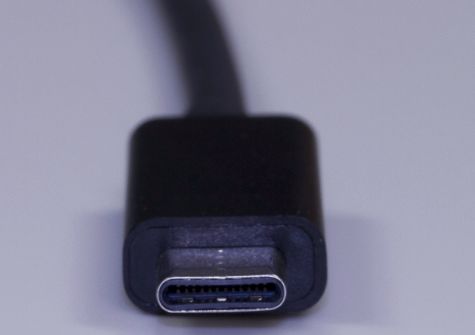Apple has said that it will comply with EU laws and introduce USB-C to future iPhones.
Earlier this month, EU legislators voted overwhelmingly in favour of a new law that will force all mobile devices sold in Europe by the end of 2024 to be equipped with a USB Type-C charging port. Laptops with up to 100W of power delivery must also adopt USB-C by spring 2026.
The law clearly has Apple in its sights, with Android smartphone manufacturers like Google, Samsung and Huawei having all made the jump to USB-C in the past.
Apple had previously argued in 2020 that such standardisation would 'stifle innovation', but the company has now publicly conceded.
Speaking to the Wall Street Journal, Apple senior vice president of worldwide marketing Greg Joswiak admitted “obviously, we’ll have to comply, but it would have been better to not have a government be that prescriptive”.
He did however defend the company’s proprietary Lightning chargers, saying that “over a billion people have it already,” and that “Lightning charges pretty well.”
The exec did not say when the first USB-C-equipped iPhones would launch, saying that “the Europeans are the ones dictating timing for European customers.”
Apple is not entirely against USB-C. The company controversially jumped feet-first into the tech with its 2015 MacBook refresh that saw Apple abandon its popular MagSafe cables and USB-A in favour of the newer tech. Similarly, the company has shifted iPads to USB-C including the recently launched 10th-Generation entry-level iPad.
Latest News
-
OpenAI launches ChatGPT Health
-
Xpeng to roll out robotaxis and humanoid robots
-
Grok restricts image editing to paid users following deepfake controversy
-
EU to propose lighter-touch digital rules for Big Tech giants
-
ICO predicts shopping 'AI-gents' could arrive in next 5 years
-
Stripe teams up with Crypto.com to boost payment solutions
The future-ready CFO: Driving strategic growth and innovation
This National Technology News webinar sponsored by Sage will explore how CFOs can leverage their unique blend of financial acumen, technological savvy, and strategic mindset to foster cross-functional collaboration and shape overall company direction. Attendees will gain insights into breaking down operational silos, aligning goals across departments like IT, operations, HR, and marketing, and utilising technology to enable real-time data sharing and visibility.
The corporate roadmap to payment excellence: Keeping pace with emerging trends to maximise growth opportunities
In today's rapidly evolving finance and accounting landscape, one of the biggest challenges organisations face is attracting and retaining top talent. As automation and AI revolutionise the profession, finance teams require new skillsets centred on analysis, collaboration, and strategic thinking to drive sustainable competitive advantage.
© 2019 Perspective Publishing Privacy & Cookies


.png)





Recent Stories